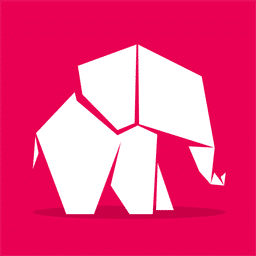The Current State of Artificial Intelligence and Its Impact on the Tech Industry
Author: Tech Industry Analyst

As artificial intelligence (AI) continues to advance at a remarkable pace, debates surrounding its capabilities and limitations remain prevalent, particularly in the realm of coding and software development. An influential expert developer has shared insights suggesting that while AI systems are increasingly being adopted by prominent tech companies to replace certain coding tasks, the nuances of human creativity and problem-solving still render human coders superior for many aspects of development. This perspective argues that a balanced coexistence of human and AI contributions is essential in the tech field.
In recent years, some large tech firms have swiftly transitioned towards integrating AI into their workflows, eager to optimize productivity and efficiency. However, there are concerns among experts that reliance on machines could undermine the quality of software development. The complexity of coding often requires human intuition and adaptability—traits that AI has yet to master fully. As such, some advocate for a reevaluation of the pace at which AI is integrated into programming roles.

An expert developer highlights the irreplaceable role of human coders in AI advancements.
The ongoing court battle between OpenAI and various stakeholders raises crucial questions regarding user privacy and data security. Recently, OpenAI announced its intention to retain logs of ChatGPT interactions indefinitely, stirring backlash from users concerned about their personal information being available in a legal context. This move, described as a fundamental shift in how companies handle user data, necessitates careful navigation of ethical considerations within AI deployment.
Sam Altman, co-CEO of OpenAI, has proposed the concept of 'AI privilege,' suggesting that interactions with AI chatbots should be treated similarly to confidential conversations between doctors or lawyers. This proposition arises from the concerns surrounding the court order demanding OpenAI to maintain not only active but also deleted user conversations, thereby initiating discussions about the need for privacy legislation tailored to AI applications.

OpenAI's approach to ChatGPT logs raises significant user privacy concerns.
In another significant development, AMD has made strategic moves by acqui-hiring the team from Untether AI, a startup focused on creating innovative AI chips. This acquisition is poised to enhance AMD's capabilities in AI chip development, positioning the company favorably within a competitive market increasingly driven by artificial intelligence technologies. The integration of Untether AI's expertise is envisioned to accelerate AMD's innovation trajectory.
Amidst these shifts in personnel and strategy, Kate Rouch, OpenAI's marketing head, has taken a leave of absence to focus on her battle with breast cancer. Rouch's decision underscores the importance of employee wellness and the need for organizations to prioritize health challenges faced by their employees. By openly discussing her health situation, Rouch highlights the intersection of personal struggles within the corporate environment.
As technology evolves, so does the prospect of augmented and virtual reality (AR and VR). Meta’s Chief Technology Officer has forecasted that 2025 will be a pivotal year for Reality Labs, indicating that significant advancements in AR and VR technologies are on the horizon. As competition heats up in this sector, consumers can expect groundbreaking updates that could reshape how virtual experiences are consumed and integrated into daily life.

Meta's predictions for augmented and virtual reality mark a critical inflection point for the future of tech.
Amidst the developments in hardware and software applications, it remains crucial for consumers and businesses alike to stay informed about the latest trends and offerings. For instance, Apple is rumored to unveil new products during its upcoming Worldwide Developers Conference in 2025, with speculation around potential launches including the Mac Pro and HomePad. These new devices are expected to deliver enhanced features that cater to the evolving needs of tech users.
In parallel, as the software landscape undergoes transformation, it is vital for developers and tech enthusiasts to hone their skills and knowledge. The rise of platforms dedicated to software testing has become significant, inspiring many to seek the best YouTube channels for guidance and insights. By following reputable channels, individuals can stay up to date on the latest methodologies, tools, and best practices that emerge in software testing and quality assurance.

Smartwatches are becoming a must-have gadget for technology enthusiasts, providing features that enhance daily life.
As we look to the future, the intricate relationship between human expertise and AI technology will continue to shape the tech industry. The balance between embracing innovative solutions while maintaining the irreplaceable value of human insight and ingenuity will define the trajectory of future developments. The evolving landscape requires an ongoing commitment to ethical practices while addressing both opportunities and challenges presented by rapid advancements in artificial intelligence.
In conclusion, a comprehensive understanding of the current developments in AI and related technologies not only empowers individuals and companies to leverage these advancements but also encourages necessary discussions about privacy, ethics, and the future of work. As we navigate this complex ecosystem, staying informed and adaptable will be paramount for anyone involved in the tech industry.